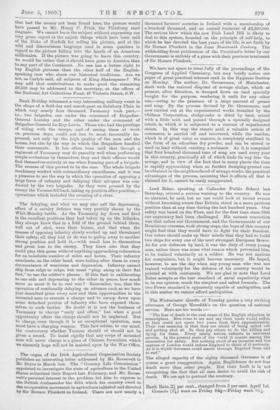The delaying, and what we may also call the depressing,
effect of a cavalry defence was very prettily shown by the Whit-Monday battle. As the Yeomanry lay down and fired in the excellent positions they bad taken up on the hillsides, they always knew that in a fold of the ground behind them, well out of shot, were their horses, and that when the masses of opposing infantry slowly worked up and threatened their safety, all they had to do was to gallop away to another strong position and hold it,—with small loss to themselves and great loss to the enemy. They knew also that they could play this game without anything approaching exhaustion for an indefinite number of miles and hours. Their infantry assailants, on the other hand, were toiling after them in every circumstance of weariness and depression. Infantry cannot skip from ridge to ridge, but must "plug along on their flat feet," to use the soldier's phrase. If this fact is exhilarating to one side and depressing to the other in peace, how much more so must it be in real war? Remember, too, that the Operation of continually delaying an advance such as we have just described gives every now and then opportunities to the mounted men to execute a charge and to swoop down upon some detached portion of infantry who have exposed them- selves to such tactics. No doubt it is not the business of Yeomanry to charge "early and often," but when a good opportunity offers the charge should not be neglected. But to charge, even though it is an exceptional operation, men must have a charging weapon. This fact settles, to our mind, the controversy whether Yeomen should or should not be given a sword. To insist rigidly that any corps of mounted men will never charge is a piece of Chinese formalism which we sincerely hope will not be insisted upon by the War Office.










































 Previous page
Previous page